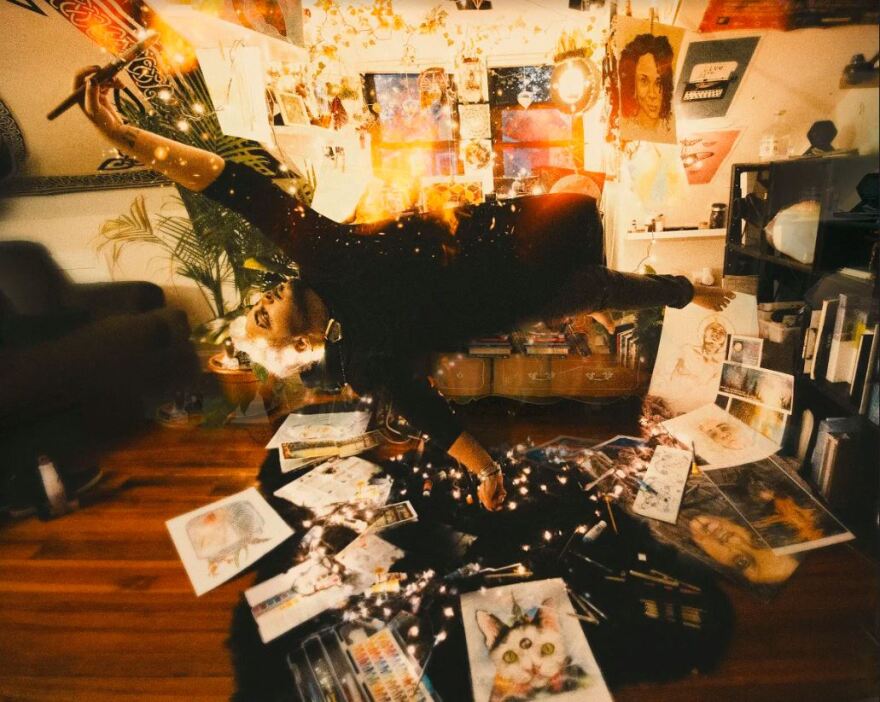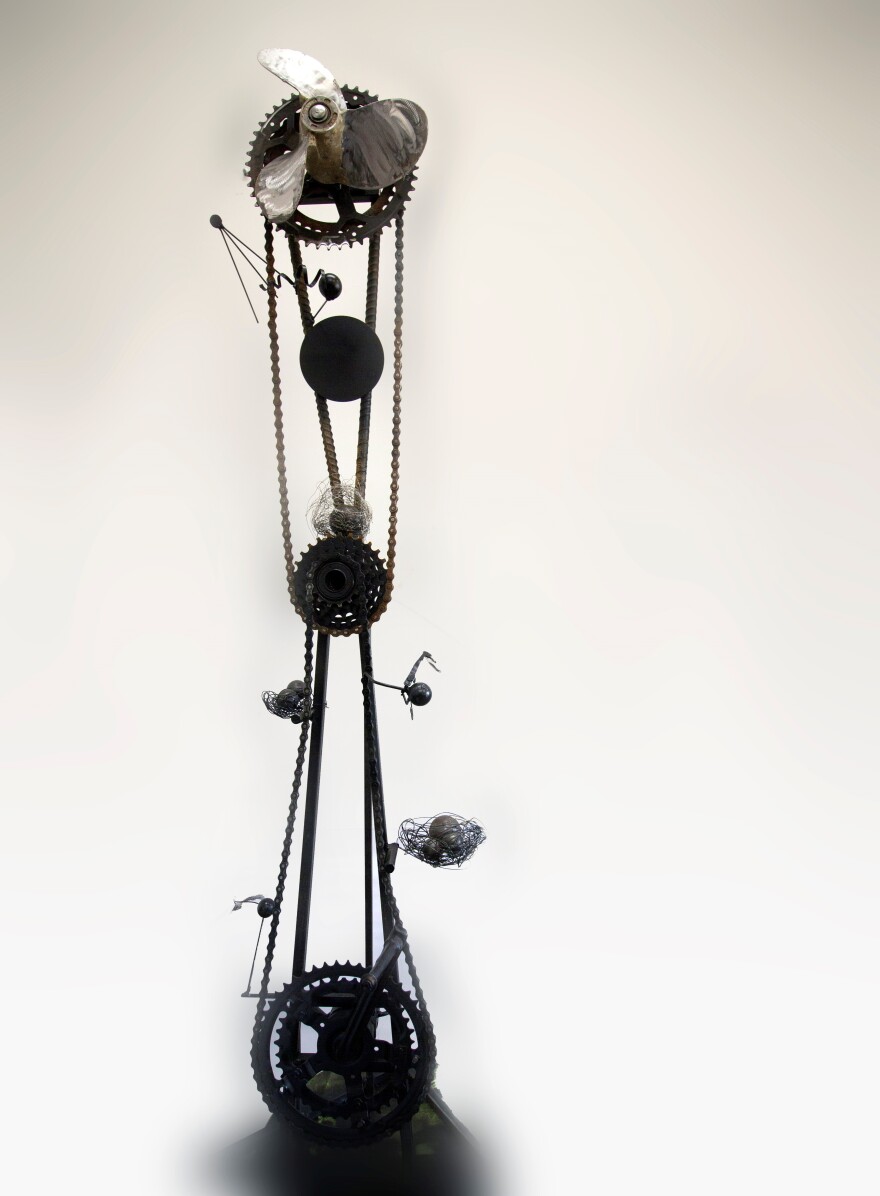Al Murray and Liz Williams met less than a year ago, but their pairing as artists in a new exhibition is two lifetimes in the making.
The exhibition “Up/Rooted” is at Revolve Gallery, in Asheville’s RAMP Studios building, through Sept. 3. The Campaign for Southern Equality supported the creation of this work and is presenting the exhibition.
“I’ve always been drawn to metalwork as an expression of a working-class masculinity that I’ve never known how to embody,” Murray said.
Raised in Western Kentucky, Murray studied metal sculpture, gender studies and queer theory in college and merged those pursuits after moving to Asheville seven years ago.
“I’m a trans-identified gender-queer person and I did not grow up with that identity being modeled to me,” Murray said. “What I did grow up with was a shop full of tools, a shop full of machines and a welder. I took those materials, those gears and chains and valves and hydraulics and brought them into the studio and said ‘I’m just going to reprocess my childhood.’ I’m still drawn to it as a way to express who I am in the world and where that fits.”
Murray builds kinetic sculptures from parts of bicycles, typewriters, roller skates and other movable pieces. Some sculptures are towers dotted with bird nests made of wire.
“They’re very—some would say a little steampunky,” Murray said. “They do require human interaction to activate them, much the way our memories do, and there’s a lot of visual metaphor in them.”
Williams is a photographer from Columbia, S.C., who moved to Asheville 10 years ago with the expectation of a more inclusive community.

“Being a queer person in a black body, sometimes you feel as though you’re seen as less than or as a monster,” Williams said. “Initially, when I was in high school, I’d do photographer as the wallflower and take photos of people so I wouldn’t have to necessarily interact with them. Now I’m going out of my way to meet up with people with their safe locations and spaces. It’s been a really interesting journey trying to get more comfortable in my community.”
In this exhibition, Williams is showing about a dozen colorful, conceptual portraits placing her subjects in mid-air, hovering in their bedrooms, outdoors and other personal spaces. The idea for these portraits came from recurring dreams in which Williams felt safe and special while floating.
“Sometimes, with my self-portraits, some of the creatures I create look kind of like inner demons I’m battling with,” Williams said. “But I’ve also been working on creating more positive images that fight against those stereotypes, and that’s included in my floating series, and I’m trying to seem less dangerous and more celebrated.”
This is the second annual exhibition from Southern Equality Studios, the new visual arts extension of the Campaign for Southern Equality. Murray and Williams are now on staff with the campaign and say their motives and messages go hand in hand.

“Just acknowledging the political climate we’re in, acknowledging heightened discrimination against trans folks and LGBT folks, the Campaign for Southern Equality decided to prioritize the role of arts and artists in catalyzing a force for LGBT lived and legal equality, so it was a no-brainer.”
“With art, you have storytelling, which can change people’s minds and hearts for what you’re hoping to gain, which is equity for everybody,” Williams said. “So hopefully we’ll be able to continue a story where people feel uplifted and also fight for social equity.”





